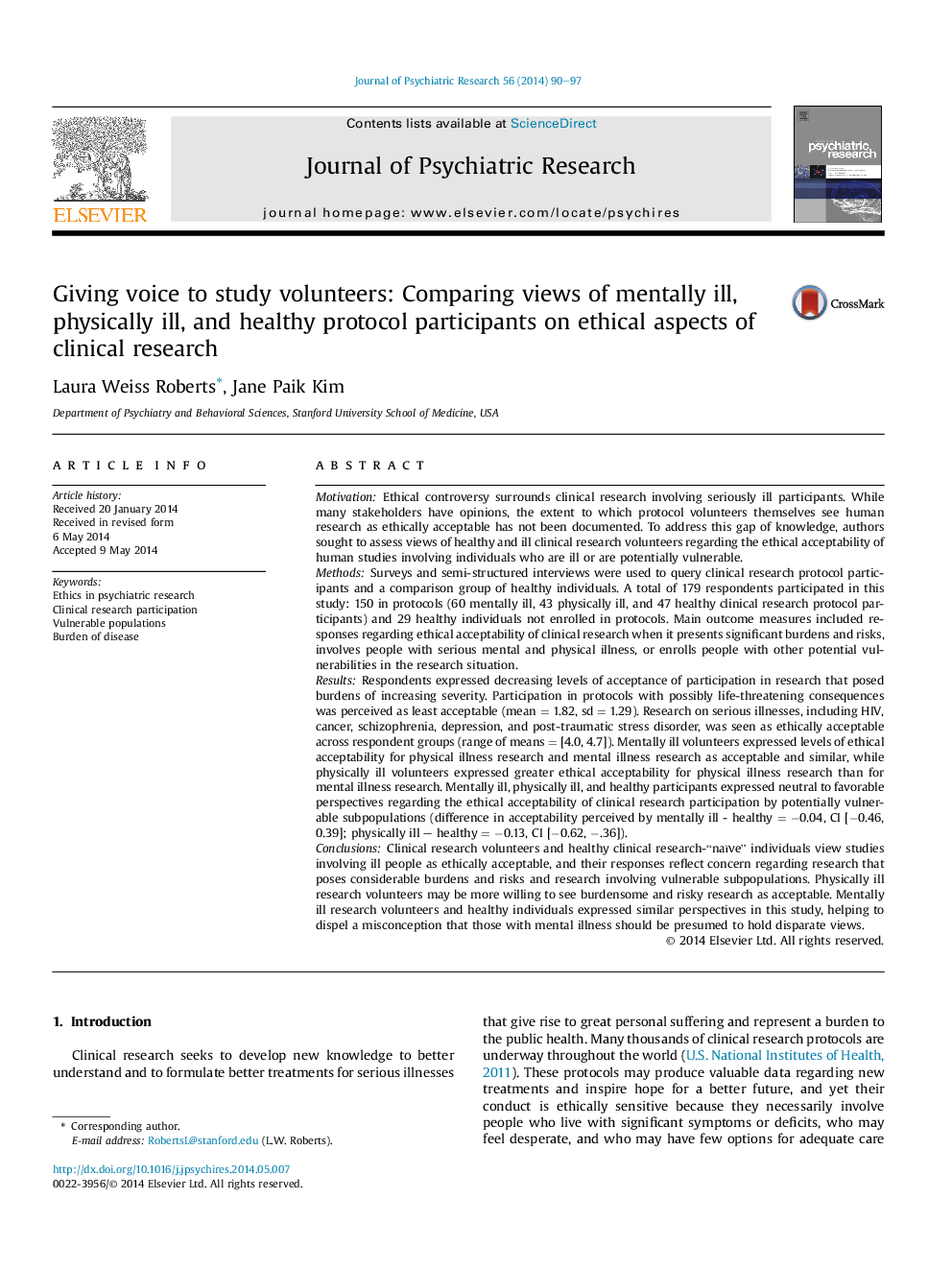| کد مقاله | کد نشریه | سال انتشار | مقاله انگلیسی | نسخه تمام متن |
|---|---|---|---|---|
| 326988 | 542678 | 2014 | 8 صفحه PDF | دانلود رایگان |
• We present the views of mentally ill research volunteers.
• We compare these views with those of physically ill and healthy research participants.
• Mentally ill and healthy volunteers expressed similar views.
• Mentally ill volunteers endorsed the ethical acceptability of illness research.
• Volunteers expressed decreased acceptance of participation for burdensome research.
MotivationEthical controversy surrounds clinical research involving seriously ill participants. While many stakeholders have opinions, the extent to which protocol volunteers themselves see human research as ethically acceptable has not been documented. To address this gap of knowledge, authors sought to assess views of healthy and ill clinical research volunteers regarding the ethical acceptability of human studies involving individuals who are ill or are potentially vulnerable.MethodsSurveys and semi-structured interviews were used to query clinical research protocol participants and a comparison group of healthy individuals. A total of 179 respondents participated in this study: 150 in protocols (60 mentally ill, 43 physically ill, and 47 healthy clinical research protocol participants) and 29 healthy individuals not enrolled in protocols. Main outcome measures included responses regarding ethical acceptability of clinical research when it presents significant burdens and risks, involves people with serious mental and physical illness, or enrolls people with other potential vulnerabilities in the research situation.ResultsRespondents expressed decreasing levels of acceptance of participation in research that posed burdens of increasing severity. Participation in protocols with possibly life-threatening consequences was perceived as least acceptable (mean = 1.82, sd = 1.29). Research on serious illnesses, including HIV, cancer, schizophrenia, depression, and post-traumatic stress disorder, was seen as ethically acceptable across respondent groups (range of means = [4.0, 4.7]). Mentally ill volunteers expressed levels of ethical acceptability for physical illness research and mental illness research as acceptable and similar, while physically ill volunteers expressed greater ethical acceptability for physical illness research than for mental illness research. Mentally ill, physically ill, and healthy participants expressed neutral to favorable perspectives regarding the ethical acceptability of clinical research participation by potentially vulnerable subpopulations (difference in acceptability perceived by mentally ill - healthy = −0.04, CI [−0.46, 0.39]; physically ill – healthy = −0.13, CI [−0.62, −.36]).ConclusionsClinical research volunteers and healthy clinical research-“naïve” individuals view studies involving ill people as ethically acceptable, and their responses reflect concern regarding research that poses considerable burdens and risks and research involving vulnerable subpopulations. Physically ill research volunteers may be more willing to see burdensome and risky research as acceptable. Mentally ill research volunteers and healthy individuals expressed similar perspectives in this study, helping to dispel a misconception that those with mental illness should be presumed to hold disparate views.
Journal: Journal of Psychiatric Research - Volume 56, September 2014, Pages 90–97
